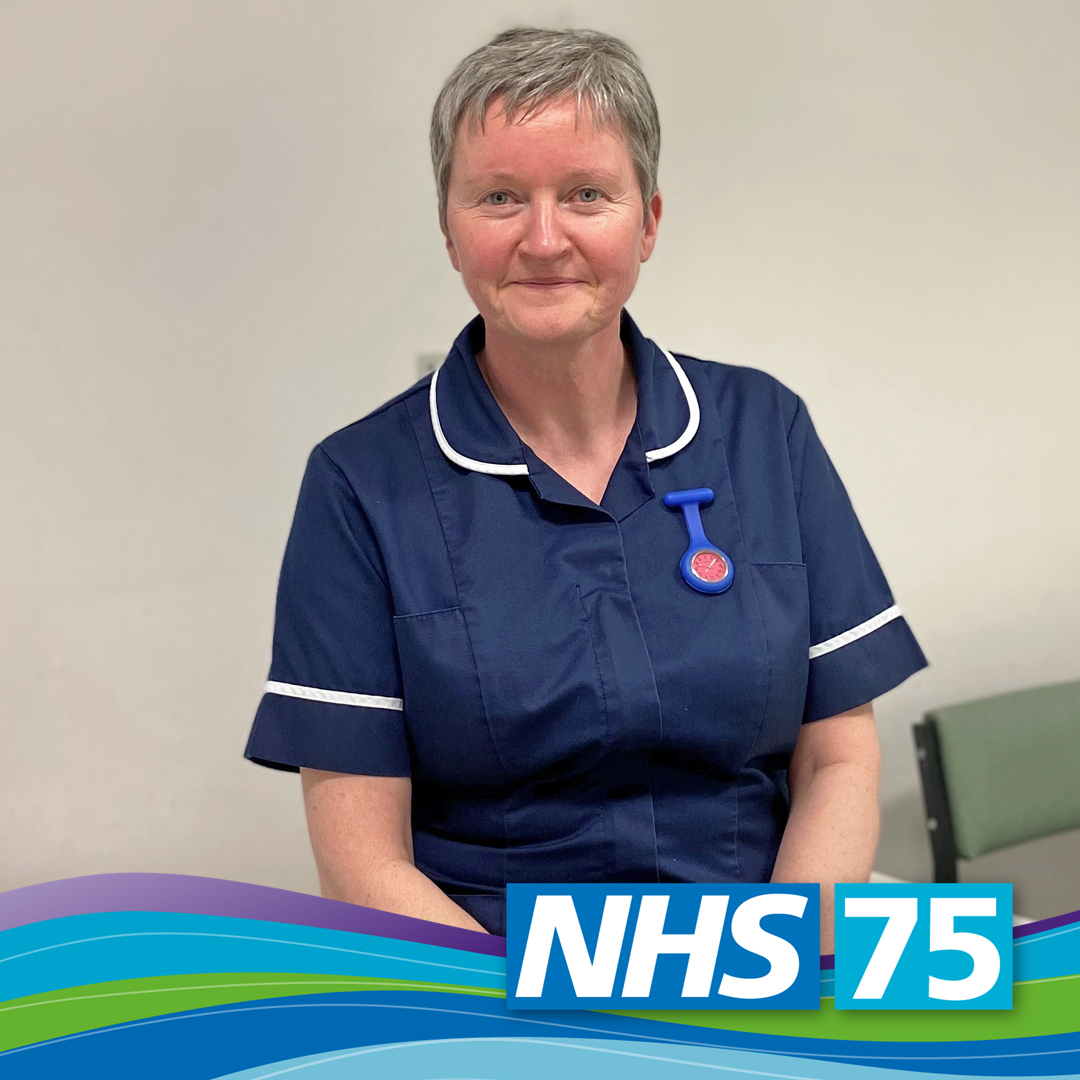“I love my job. It’s such a privilege and an honour to be involved with patients and their families during what is often one of the most vulnerable and uncertain times of their lives.”
Deborah Dobson is a Urology Cancer Clinical Nurse Specialist (CNS). She started working on the Urology ward at Blackburn Royal Infirmary in 1994 and has worked as a CNS at ELHT since 2007. Deborah works within a team of five CNSs, supporting patients who experience urological cancers.
The role and the work that myself and the team undertake can be rewarding. Despite the distress and sometimes sadness involved in elements of our work, there is job satisfaction. As a team, we endeavour to make a difference to patients and their families. It’s heartwarming to receive positive feedback from them, a real boost to team moral and motivation.
 My role is very varied. Every day is different because every patient I meet is different. We are always learning something new, it’s fair to say every day is a school day!
My role is very varied. Every day is different because every patient I meet is different. We are always learning something new, it’s fair to say every day is a school day!
Our CNS team supports urologist and oncologist clinics. These clinics are very varied – at one end of the spectrum involving ‘breaking bad news’, to the opposite end of the spectrum delivering good news and positive outcomes following treatment. Our team aims to assess patient’s need, priorities, concerns and offer advice and support.
Our team undertake a number of nurse-led clinics, something we are very proud of. The prostate biopsy results clinic introduces patients and their families to a CNS from the time of diagnosis. Our nurse led prostate cancer follow-up clinic ‘re-introduces’ patients to the CNS, following treatment, hopefully contributing to improved continuity along the patient pathway. Our nurse led, bladder cancer treatment clinic also provides the opportunity for regular patient assessment and support.
Thanks to continued developments in diagnostics and treatments, I now see more patients living well with and beyond cancer. It’s inspirational to see patients coming back for check- ups, often years after diagnosis and treatment of cancer.
Rising to the challenge of delivering ongoing, long-term surveillance for increasing numbers of patients, ELHT Urology are embracing the introduction of Personalised Risk stratified follow-up for prostate cancer patients – a way to reduce the need for hospital visits by a more remote, personalised method of follow-up. Currently in its infancy, the vision of this follow-up model aims to include an electronic patient portal, increasing patient access and involvement.
75 years of the NHS needs to be celebrated. The NHS has been a constant in my life both personally and professionally. An amazing organisation, long may it continue."
If you are worried about any symptoms you think could be cancer, speak to a GP urgently. More useful information can be found at www.macmillan.org.uk


